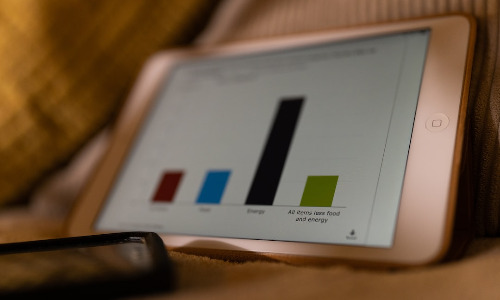
Inflation in the UK Continues to Plague Families and Businesses
Inflation in the UK: The UK’s rate of inflation has remained in the double digits, far surpassing expectations, indicating that the cost of living crisis continues to grip families and businesses throughout the country. Markets are betting that the Bank of England will increase interest rates to 5%, amid concerns that the country’s economy is spiralling out of control. The rate of price increases reduced to 10.1% last month, from a shock rise of 10.4% in February, according to the consumer price index released by the Office for National Statistics (ONS). However, the number was above the city’s expectation of a fall to 9.8%. Last month’s inflation rate was held high by rapidly increasing food prices, which jumped more than 19%, the fastest acceleration since the 1970s. Experts warn that the figure will need to reduce further before the Bank of England will be willing to halt the rise in interest rates.
The numbers illustrate that some imported inflation is feeding through to domestic price pressures, which tends to be harder for policymakers to reduce. Services inflation remained steady at 6.6% last month, while goods prices increased nearly 13%. Inflation is wiping out Brits’ living standards at a historic pace. Numbers from the ONS yesterday showed real wages fell 4.1%, and calculations from the economic think tank, the National Institute for Economic and Social Research, put households on course for a massive spending power hit. Chancellor Jeremy Hunt stated that these figures demonstrate the need to continue efforts to drive down inflation to ease pressure on families and businesses.
Yesterday’s jobs numbers showed pay growth nudged higher and topped expectations, hitting nearly 6% in the three months to February. However, Bank officials are concerned that pay rises not offset by productivity gains could bake in elevated inflation over the long run.
Labour Shadow Chancellor Rachel Reeves argues that under the Tories, the UK’s economy is weaker, prices are out of control, and people have never paid so much to get so little in return.
Experts still believe that inflation will fall rapidly this year due to a big reduction in global energy prices after they surged to record highs following Russia’s invasion of Ukraine. The UK is suffering from a “terms of trade shock,” meaning it is paying vastly more to import products, pushing up inflation. Nonetheless, the ONS’s figures illustrate some of that imported inflation is feeding through to domestic price pressures, which tends to be harder for policymakers to reduce. Services inflation held steady at 6.6% last month, while goods prices increased nearly 13%. Inflation is wiping out Brits’ living standards at a historic pace. Numbers from the ONS yesterday showed real wages fell 4.1%, and calculations from the economic think tank, the National Institute for Economic and Social Research, put households on course for a massive spending power hit. Chancellor Jeremy Hunt stated that these figures demonstrate the need to continue efforts to drive down inflation to ease pressure on families and businesses.
Yesterday’s jobs numbers showed pay growth nudged higher and topped expectations, hitting nearly 6% in the three months to February. However, Bank officials are concerned that pay rises not offset by productivity gains could bake in elevated inflation over the long run.
Labour Shadow Chancellor Rachel Reeves argues that under the Tories, the UK’s economy is weaker, prices are out of control, and because of inflation in the UK people have never paid so much to get so little in return.


